Film Name:看不見的客人 / Contratiempo
Word-of-mouth holds immense power. Even someone like me, who rarely watches suspense films, couldn’t resist being lured into the theater by the unanimous praise from friends. It feels great to contribute to the box office of such a film… Perhaps because I’d just finished watching and writing about the third season of “Narcos,” hearing Spanish felt strangely familiar and comforting.
The film’s greatest draw is undoubtedly its brilliant plot—endless suspense, interlocking clues, and a bewilderingly complex truth. Before watching, I expected a story heavy on logic and light on emotion, but after seeing it, I found the emotional depth surprisingly robust.
I won’t delve into rational analyses of structure, plot twists, or design (not my forte, and many friends explain these better). Instead, I’ll briefly touch on the “emotional” aspects… Without the drive of that heart, this story—a battle of wits fought with brains—wouldn’t exist.
That car accident was a mistake from the start.
If Doria hadn’t cheated, he wouldn’t have taken a shortcut, driven recklessly, or lost focus. If he’d called the police immediately after the crash, nothing would have happened… …But he chose to destroy evidence, conceal everything, and even had his lawyer Felix fabricate an alibi to evade the police.

Doria, on the verge of reaching the pinnacle of his career, couldn’t bear the pain and loss that would come from exposing his affair. Rather than face the temporary torment of truth, he chose a lie that would condemn him forever.
The true protagonists of this film are Thomas and Hervéla, a couple with gentle, kind souls. It was precisely this quality that allowed them to help Laura when her car broke down, providing the only lead in the search for their missing son, Daniel.
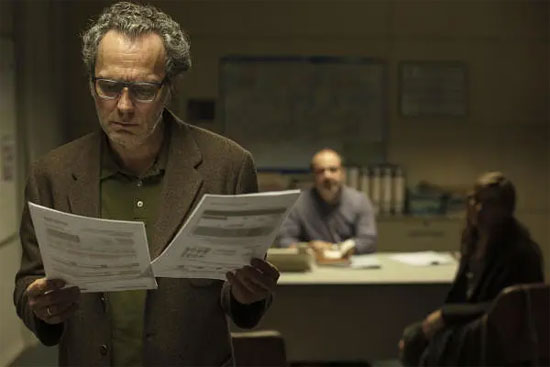
They tracked down Doria through vehicle records, hoping only to learn about their son… Even at this point, the couple refused to consider the worst. Even if they suspected their son might be dead, they couldn’t bring themselves to see Laura—whom they’d helped that night—as a suspect.
Had no further twists unfolded, this disappearance might have remained an unsolved mystery forever.
Yet Dorian, his conscience gnawing at him, acted first. He orchestrated a scheme using Daniel’s bank card—a classic case of embezzlement—making everyone believe he’d fled in guilt.
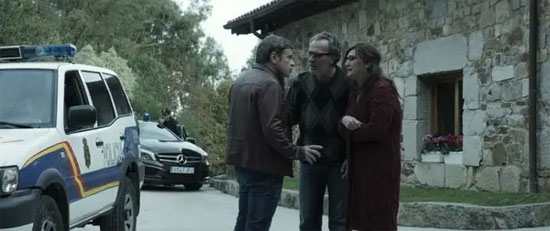
Anyone could be deceived, but not Daniel’s parents—they firmly believed their son wouldn’t commit such a reckless act. This conviction made them realize Daniel’s disappearance was indeed orchestrated.
In other words, Doria’s self-imposed “safety net” became a futile attempt to cover up the truth.
Overwhelmed by grief and rage, Elvira suffered a stroke. Thomas, seething with anger, began tracking Dorian… until Laura, consumed by her own anguish, reached out to them, finally bringing tangible progress to the case.

Liars often fall into a state of panic—some fear exposure, others the condemnation of their conscience. Dorian belonged to the former; Laura to the latter.
Only by revealing the truth to the Thomases and surrendering with Doria could Laura, trapped in despair, truly escape the fear that haunted her like a shadow… But the problem was, this was merely her wishful thinking.
Intentional crime and accidental crime were entirely different matters, especially since Doria refused to take responsibility for any charges whatsoever…
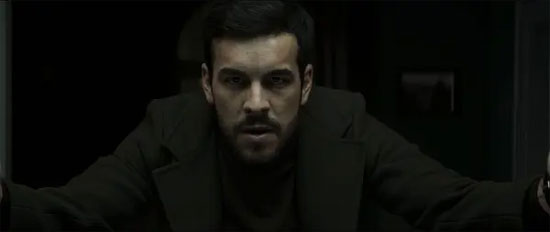
Fear breeds anger, anger breeds hatred, and hatred breeds disaster. If Doria’s earlier crimes stemmed more from “fear,” then within Room 715, he rapidly completed a cascade of negative emotions, unleashing an even greater catastrophe.
After the impulsive murder, Doria was led away by police. Thomas and Elvira watched him depart, finally realizing with profound certainty: This man is a devil. We’re not done with him.
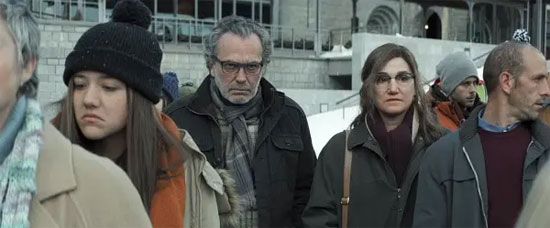
The suspicious disappearance of their son had already cast heavy doubt on Doria… Now, even Laura, who had seemingly found her way back, had died under “mysterious” circumstances. The couple had pieced together most of the puzzle.
Yet they knew Doria held significant leverage. The judicial system operates on the principle of “innocent until proven guilty,” making it difficult to bring him to justice. Thus, they could only patiently monitor him, waiting for an opportunity…
Thus, the opening scene unfolds—Elvira disguised as lawyer Goodman, determined to extract the truth from Doria’s lips.
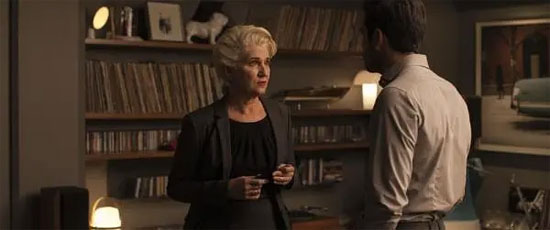
Thomas, a retired engineer, and Elvira, a former theater actress, combined their skills and experience. In the twilight years meant for rest, they raced against time—a brilliant strategy on the surface. The couple held an initial advantage over Dorian, yet they remained without concrete evidence. Their adversary possessed the “advantages” of wealth, status, and reputation—and was a cunning, treacherous villain. Thus, every step they took felt like walking on thin ice.
Elvira’s most perilous moment came when Doria confessed to killing Daniel—who was still alive. A mother’s already shattered heart was utterly crushed into dust…

Elvira’s driving force in staging this charade was to expose Doria’s true colors and expose his tail. This demanded absolute composure and rationality throughout… But even the most restrained person would have been overcome with rage at that moment, simply because she was Daniel’s mother.
And after the truth was revealed, Elvira’s “loss of composure” exposed Doria’s true nature—a murderer driven by selfishness who had killed two people.
Though Elvira nearly slipped up, it was precisely her genuine emotion that stripped Doria of his final layer of disguise, earning his complete trust.

Having achieved her goal, Elvira withdrew, scribbling words like “coward,” “murderer,” “liar,” and ‘arrogant’ in her notebook. The final word she wrote was “justice.” Thomas and Elvira watched him through the window, drawing a line under months of struggle.
“Contratiempo” pits intellect against intellect, but more crucially, courage against courage—a courage rooted in the age-old principle we’ve revered for millennia: what goes around comes around.
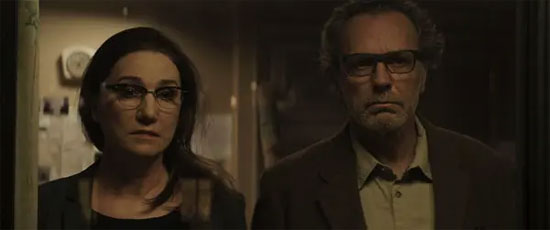
Behind Thomas and Elvira’s meticulous plan lay months of tears and heartache. They abandoned their gentle honesty, driven solely by the desire to bring down the killer;
Laura, unable to withstand the torment of her conscience, developed intermittent panic disorder and deep depression. Ultimately, she resolved to confess in hopes of leniency, only to face a miserable fate as an accomplice;
Even Doria, the mastermind, endured countless nights of dread. Clinging to the illusion of evading punishment, she ultimately faced the judgment and retribution she deserved…
Every character’s journey echoes the film’s central theme, encapsulated in its most profound line: No pain, no salvation.
The well-crafted plot effectively highlights the film’s spiritual core. After watching, I gained the following insights:
1. Films meant for the cinema truly shouldn’t be watched on a computer screen.
2. Honesty and integrity aren’t just admirable traits—they’re fundamental to a clear conscience. One lie requires countless others to cover it up.
3. In matters of life and death, no one can afford to be naive or ignorant.
4. Even the most ordinary person must never cease striving for self-improvement. When the world offers no help, you can only rely on yourself.
5. For selfish gain, people may stoop to the lowest depths; for beloved family, they can rise to the loftiest heights.
6. Always buckle up and avoid using your phone while driving. Safety precautions aren’t about avoiding the tedious hassle of 9999 calls—they’re about guarding against that one unforeseeable one-in-ten-thousand chance.
Please specify:Anime Phone Cases » Contratiempo 看不見的客人 2016 Film Review: No pain, no salvation.